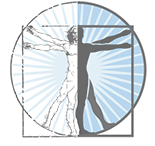📌 Course Prerequisite
All participants must email a current American Heart Association BLS for Healthcare Providers card prior to the day of the course.
🩺 Course Description
The Advanced Cardiac Life Support (ACLS) Provider Course is an advanced, instructor-led course designed for healthcare professionals who manage or respond to cardiopulmonary arrest and other cardiovascular emergencies. This includes staff in emergency response, emergency medicine, intensive care, and critical care units.
Training includes both large group instruction and small group, scenario-based learning and testing stations.
Topics covered:
-
Basic Life Support (BLS) review, including chest compressions, bag-mask ventilation, and AED use
-
Recognition and early management of respiratory and cardiac arrest
-
Peri-arrest conditions, such as symptomatic bradycardia
-
Airway management and pharmacology
-
Management of acute coronary syndromes (ACS) and stroke
-
Effective team communication and leadership
-
Resuscitation team dynamics
✅ Upon successful completion of all components (skills testing, Megacode, and written exam), you will receive a two-year ACLS Provider e-card.
📚 Course Materials
-
HNMC Employees: May borrow an ACLS manual prior to class from the Simulation Center office on 4 West – ISL. A payroll deduction form is required when borrowing and will be discarded upon return of the manual.
-
General Public: You may pick up a book prior to the class or the day of the class.
📝 Pre-Course Requirements
All participants must complete the required Pre-Course Self-Assessment.
⚠️ Important:
This course does not teach ECG interpretation, ACLS pharmacology, or algorithms. You must come prepared, having reviewed this material independently or through the Pre-Course Self-Assessment.
📧 E-Card Certification
You will receive your AHA ACLS e-card via email within two weeks of successfully completing the course.
If you have any questions, please feel free to contact us at 201-833-3010 or simulation@holyname.org.
- Thursday, December 18, 2025 from 9:00 AM to 4:00 PM (5 seats left)Holy Name Community Training Center-718 Teaneck Rd. Teaneck, NJ 07666
This class continues on:
Fri 12/19/2025 from 9:00 AM to 2:00 PM
- Tuesday, January 27, 2026 from 9:00 AM to 4:00 PM (12 seats left)Holy Name Community Training Center-718 Teaneck Rd. Teaneck, NJ 07666
This class continues on:
Wed 1/28/2026 from 9:00 AM to 2:00 PM
- Thursday, February 19, 2026 from 9:00 AM to 4:00 PM (12 seats left)Holy Name Community Training Center-718 Teaneck Rd. Teaneck, NJ 07666
This class continues on:
Fri 2/20/2026 from 9:00 AM to 2:00 PM
- Monday, March 30, 2026 from 9:00 AM to 4:00 PM (12 seats left)Holy Name Community Training Center-718 Teaneck Rd. Teaneck, NJ 07666
This class continues on:
Tue 3/31/2026 from 9:00 AM to 2:00 PM


 (201) 833-3010
(201) 833-3010


